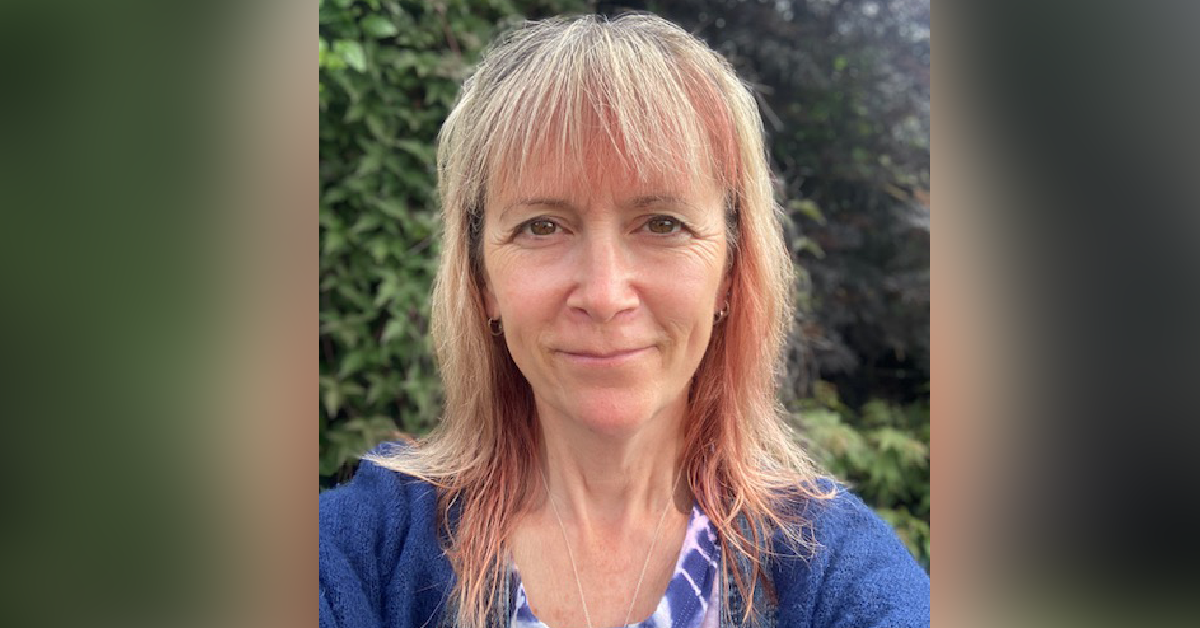
Pippa Swan is a humanist pastoral carer in Northern Ireland and volunteer for the Non-Religious Pastoral Support Network. Pippa is the one of the first people to have ever provided care in a Northern Ireland prison, and is also the first person in Northern Ireland to study the MA in Existential and Humanist Pastoral Care. We caught up with Pippa to talk about her work, motivations, and what it takes to be a humanist pastoral carer.
Hi Pippa, what inspired you to become a humanist pastoral carer?
It was a somewhat impulsive response to seeing an advert on Facebook looking for people who could support people in difficult times from a non-religious perspective. I think I was looking for a challenge that was outside of my comfort zone and something new to try. Going into a prison seemed to fit both those things.
Why, in your view, is humanist pastoral care important?
I have long thought that religion and religious people don’t have any kind of monopoly on being moral or thinking deeply about the world and how to live well within it. I went to religious schools as a child and even then can remember thinking, ‘Hang on, I don’t need god or the bible to tell me the right way to behave, I can work that out for myself’. I personally have never felt the need to make sense of the world through a faith or membership to a religion. I like to read, and listen and think, and take what makes sense to me and use it to help me live the best way I can. At times we all need some help and support, and I’m not someone who appreciates being told what I should or must do. I believe that others who also don’t necessarily have faith in a higher power, or a belief that a particular text holds all the answers, would like help and support from people who won’t give them some pre-prepared or formulaic answers.
What inspired you to study the MA in humanist pastoral care?
I come from a scientific and professional background. I’m somewhat conditioned to want to be ‘qualified’ in whatever I do. Non-religious pastoral care is the ‘new kid on the block’ when it comes to institutions, and can be regarded as lacking in depth and gravitas by those who are more used to pastoral care coming from religious, usually Christian, chaplaincy. I was keen to do something which allowed me to bring more depth and confidence to the role. I love investigating and thinking about big existential, human, ethical issues and the course allows me to indulge in this while also applying those issues, to individuals through pastoral care. I was worried that my lack of philosophy, humanities, and arts background might be an issue but I’ve really enjoyed being exposed to so many new ideas and theories about the world and how we live. Having some years (lots!) and experience of life and interacting with people, together with all the experiences of the others on the course, has made learning, and the important unlearning, very rich and rewarding.
What do you think are the most desirable qualities for a humanist pastoral carer?
Probably compassion and curiosity. One of the most valuable things I’ve taken away from my first year is that we need to challenge ourselves and unlearn many things which we thought we knew. In fact my definition of wisdom is now the ability to realise how much we don’t know, and that so many of the assumptions and short cuts we use about ourselves and others are not true. If we can set aside, or at least be aware of, our preconceived ideas about others or their situation – and use an open, kind curiosity to find out what life is like for them – then that seems like a good starting point to offering support and the metaphorical, or real, holding of someone’s hand.
Tell us about providing pastoral care in a prison setting.
It seems obvious to say that a prison is a very different and difficult place to be. Many things have surprised me about the prison. I have been able, in a relatively short space of time, to feel comfortable walking about on my own and interacting with prisoners. Like most people I had never set foot in a prison before, and found the prospect of being ‘let loose’ inside one without a personal bodyguard daunting. It was really important that I had another volunteer with me both physically and to talk to afterwards. We loosely come under the umbrella of the Prisoner Development Unit (PDU) rather than the chaplaincy department, as would be more usual in English prisons, where those offering humanist or non-religious pastoral support are included within the chaplaincy team. This has meant that we have had to feel our way around and work out for ourselves how to make contact with prisoners and identify how best to help those who need it.
What have you learned through volunteering as a pastoral carer?
I’ve learned I can do something that I wasn’t sure I could and that is up-lifting. My ideas about what is hard about prison have changed, I used to think arriving in prison would be the worst thing that could happen, but actually for many people I think leaving prison can be worse. For some: the security, predictability and support that prison can provide is easier than the lonely or complicated lives they have outside. Many prisoners come from chaotic, difficult, bereaved and traumatised families and have problems with mental health and addiction. There are times when it is hard to listen to and witness distress and the inability to change the reality for some people can weigh on you. But when you feel that you have helped by listening or even by having a ’normal’ conversation about non-prison topics it feels worthwhile.
How does pastoral care related to view of life as a humanist?
I’m a rational person who strongly believes that the world can be explained, mostly, by science. But I’m also happy that there is much we cannot explain, yet, and the human experience in all its mystery and the natural world in all its wonder are truly amazing and they are what makes life worth living. I know that feelings come from the most incredible interaction of electricity and neurotransmitters in the brain but they also can’t merely be reduced to that explanation, they are important and ‘matter’. It ‘matters’ therefore how we treat people and how we live our lives.
What Northern Ireland Humanists campaign is closest to your heart?
In addition to the campaign for recognition of non-religious pastoral care as an important resource, I feel strongly about assisted dying. That I, and others, should be able to use the best that medicine and medical care has to offer when I am unwell but be unable to use them when I am dying or need to stop pain or suffering seems unreasonable. I make no presumptions about what the choices of others should be but I also don’t want others to presume about what choices I should make for myself.
Pippa, thank you for speaking with us.

